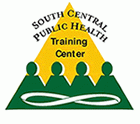
Advanced Leadership and Practice - Part II
Course Description:
Dramatic changes will occur in public health and health care in the next decade. This course provides two real world case studies demonstrating how necessary leadership skills facilitate public health practitioners and other health care providers to work effectively in the changing environment at a community, state or regional level. These leadership skills are essential for designing and advocating for programs and policies necessary to promote health.
Target Audience
Academic Faculty/Staff, Federal Government Employees, State Government Employees, Local Government Employees, Non-Government Employees and Students
Learning Objectives
- To describe and discuss what leaders do
- To understand the need for a clear, exciting vision for an organization
- To identify the characteristics and components of effective visions
- To understand the need for and role of effective visions
- To identify the characteristics and components of effective missions
- To understand the ends-means relationship of mission, vision and goals and how they narrow the scope of the organization
- To show that new goals will have to be adopted for programs when the vision and mission change
- Identify strategies for understanding and supporting a consistent vision
- Understand that creating coalitions is a process of developing common interests and goals
- To identify recognize the important obesity stakeholders
- To understand that organization and leadership are essential if coalitions are to be maintained and achieve their purpose
Instructors:

Peter Ginter, PhD
Peter M. Ginter (Ph.D., University of North Texas; M.B.A., B.S., Auburn University) is Professor and Chair of The Department of Health Care Organization and Policy and a Senior Scholar in the Lister Hill Center for Health Policy in the School of Public Health at the University of Alabama at Birmingham.
Dr. Ginter is active in research in strategic management, leadership, and health care organizations. He is the author or co-author of fifteen books including Strategic Management of Health Care Organizations, 6th ed. (2009), Public Health Leadership and Management (2002) and The Physician Strategist (1996).
Dr. Ginter has published numerous articles and case studies in management, public health, and health care journals and has been principal investigator on numerous federal and state funded research grants.
His research interests include strategic management, leadership, and planning in public health and health care organizations. Dr. Ginter teaches courses in strategic management and leadership.

Andy Rucks, PhD
Andy Rucks is a Professor in the Department of Health Care Organization and Policy at the University of Alabama at Birmingham, School of Public Health. Andy has almost 30 years of academic and business experience. He has held business-school faculty positions at Auburn University, the University of Arkansas, the University of Alabama at Birmingham, and Samford University. In 2004, Andy joined the School of Public Health at UAB, where he teaches finance, management, strategic planning, and process analysis; conducts research in public health preparedness for all hazards; designs, facilitates, and evaluates drills and exercises; and provides advice to agencies and companies in a variety of areas including continuity of operations planning, process optimization, and strategic planning. He is the author of two books, nine computer programming aids, and more than fifty articles and cases. Andy holds BS and MBA degrees from Auburn University, and a PhD degree from the University of North Texas.
Available Credit
- 1.00 Participation/CETulane Professional and Continuing Education (PaCE) awards 1.00 hour(s) of credit for completing Advanced Leadership and Practice - Part II
Price
Required Hardware/software
System Settings
This course is designed to work most effectively if your computer and internet connection meet certain minimal requirements. This course can be accessed using a Windows 10 PC or a Mac with High Sierra1, Mojave, or Catalina. Pop-up blockers should be disabled when viewing the course. Internet Explorer 11 (for Windows 10), or the current version of Google Chrome, Mozilla Firefox, or Apple Safari (for Windows 10 and or Mac) is required. Many of our courses require Java and JavaScript enabled.
Links to External Websites
Links to websites outside this course will open in a new window or tab. Some browsers may minimize the course window. If this occurs, maximize the course window to return to the course.
Adobe Acrobat Reader (for desktops and laptops)
Adobe Acrobat Reader is required to access some documents in this course. If you need to download a free copy of Acrobat Reader, click here.
Internet Connection Speed
A minimum download speed of 1.5 Mbps is recommended for an optimal experience, which is commonly the speed associated with a basic DSL or a cellular/satellite connection. A faster connection, such as cable or fiber service, with further enhance your online experience. A Wi-Fi connection is generally acceptable, but it is dependent upon one of the two services mentioned above. You can check your internet connection speed at http://www.speedtest.net/.

 Facebook
Facebook X
X LinkedIn
LinkedIn Forward
Forward